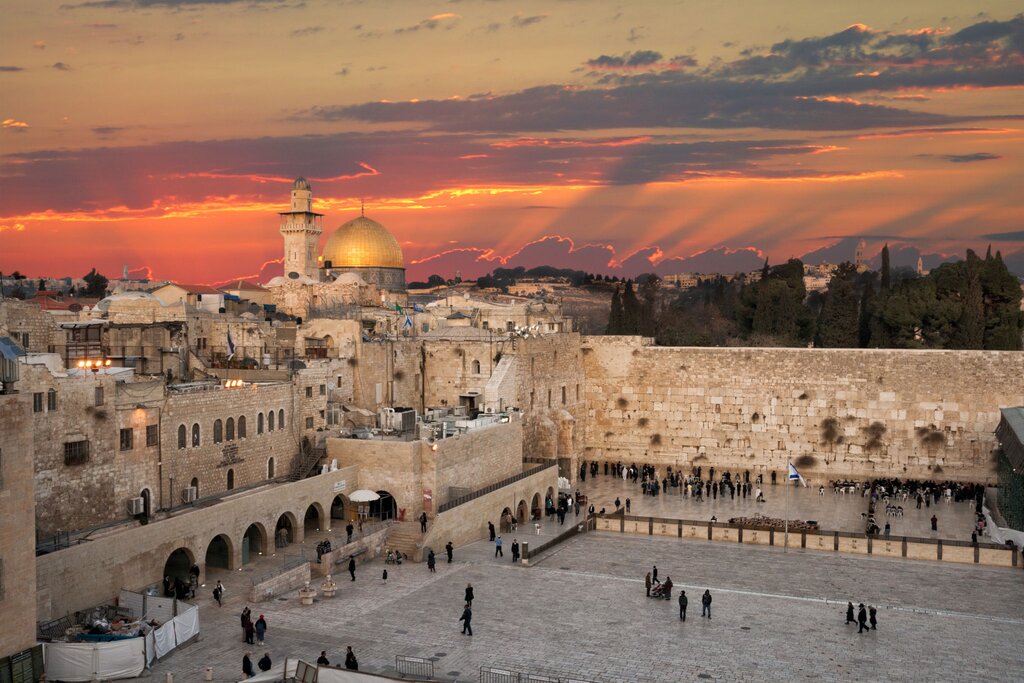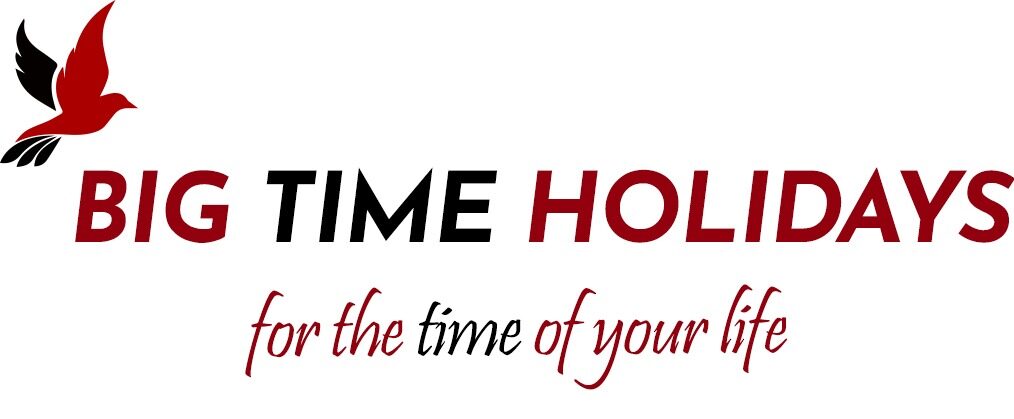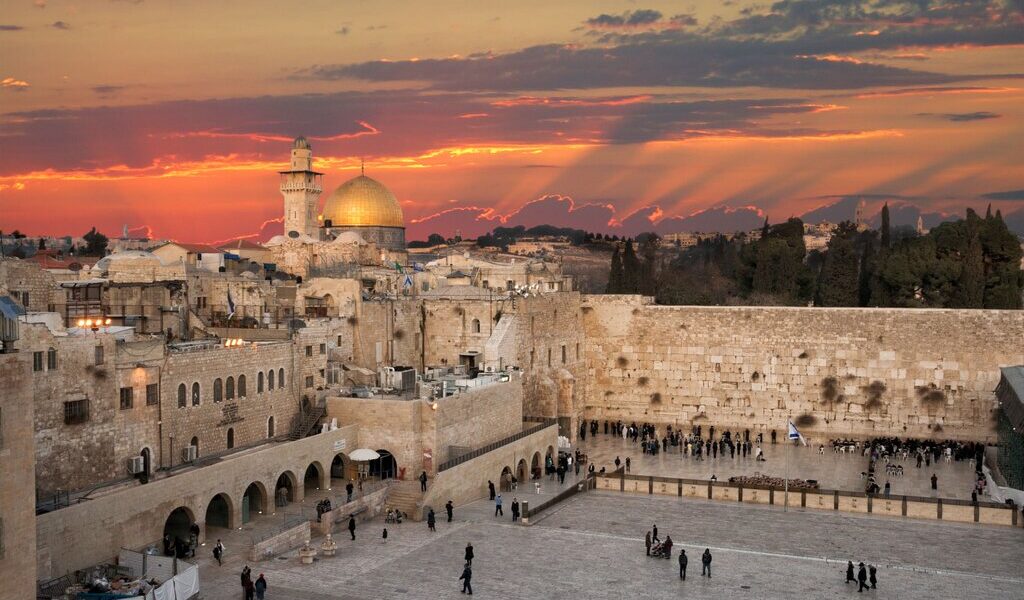
With temperatures reaching a high of 72ºF (22ºC) in Eilat and a low of 26ºF (-3ºC) at Mount Hermon, February is an excellent time for both snow enthusiasts and beachgoers to visit Israel. While you’ll need to plan for the occasional rainy day, in return, you can take advantage of cheaper flight and accommodation prices. Plus, with fewer visitors in Israel, you can roam the Biblical highlights of Via Dolorosa and the Church of the Holy Sepulcher without the crowds.
**Weather in Israel during February**
February in **Israel** marks the transition from winter to spring. While the earlier part of the month can still bring cooler temperatures and occasional rainfall, the weather generally improves as February progresses. The intensity of the winter rains begins to diminish, and the days become noticeably warmer, offering a glimpse of the pleasant spring weather to come.
However, it’s important to be prepared for varying conditions depending on the specific region you plan to visit. In cities like **Tel Aviv**, you can anticipate experiencing the highest amount of rainfall, with an average of approximately 4.4 inches (113 mm) expected throughout the month. This means packing a raincoat or umbrella is advisable if you’re spending time in Tel Aviv during February.
In stark contrast to the wetter conditions in Tel Aviv, the southern city of **Eilat** experiences significantly less rainfall in February, with an average of only 0.1 inch (3 mm) of precipitation. Eilat also boasts a much warmer climate during this time, with an average high temperature of 72ºF (22ºC), making it an ideal destination for those seeking sunshine and milder temperatures. Many visitors enjoy basking in the sun on Eilat’s beaches during February.
For a completely different experience, consider a visit to **Mount Hermon**, Israel’s northernmost point and home to a popular ski resort. At this altitude, temperatures remain considerably colder, rarely exceeding 39ºF (4ºC) in February. A substantial amount of snow cover is typical, making it a perfect destination for winter sports enthusiasts and those seeking a snowy landscape.
**Crowds and Costs in February**
February falls within Israel’s shoulder season, which translates to fewer tourists compared to the peak seasons of spring and fall. The variable weather conditions generally deter some travelers, resulting in a less crowded experience at many of Israel’s most popular attractions.
This reduced number of visitors means you can enjoy a more relaxed and intimate exploration of historically significant sites such as the **Via Dolorosa**, the **Church of the Holy Sepulcher**, and **Museum Yad Vashem** (World Holocaust Remembrance Center). You will be able to admire these landmarks without the usual throngs of tourists.
In addition to fewer crowds, February often offers cost savings on accommodation and flights. Hotel prices in major cities like Tel Aviv and **Jerusalem** tend to be lower compared to the busier seasons. Similarly, both international flights into Israel and domestic flights within the country are often available at reduced prices.
However, it’s important to note that the shoulder season can also impact smaller villages and towns. In places like **Capernaum** and **Ein Karem**, some restaurants and shops may be closed for the winter season.
Conversely, Eilat and Mount Hermon experience a different dynamic. Eilat’s favorable weather attracts both domestic and international tourists seeking sunshine, while Mount Hermon’s snow-covered slopes appeal to winter sports enthusiasts. As a result, you can expect a more lively atmosphere and potentially higher prices in both of these locations compared to other parts of the country.
As February progresses and the arrival of spring becomes more apparent, visitor numbers throughout Israel generally begin to increase again.
**Where to Go in Israel during February**
Israel’s diverse climate and geography offer a range of experiences for visitors in February. You can tailor your trip based on your preferences for weather, activities, and desired level of activity.
A classic tour encompassing major historical and cultural sites is a great option, even with the possibility of occasional rain. **Tel Aviv** and Jerusalem are particularly appealing during this time due to the lower crowds. In Tel Aviv, take advantage of the opportunity to visit **Rabin Square** and delve into Jewish history at the **Diaspora Museum**. Then, journey to Jerusalem to explore the ancient **Old City**, and marvel at **Temple Mount**, a site of immense religious significance.
If you are seeking warmer temperatures and sunshine, southern Israel is the ideal destination. While swimming may not be ideal, exploring the unique landscapes surrounding the **Dead Sea** is a rewarding experience. Don’t miss the opportunity to visit the hilltop fortress of **Masada**, offering breathtaking views, and the **Qumran Caves**, where the Dead Sea Scrolls were discovered.
Alternatively, if you’re a fan of winter sports and snowy landscapes, head north to Mount Hermon in the **Golan Heights** for skiing, snowboarding, or simply enjoying the winter scenery.
Another option is to head north to **Tiberias**, a city steeped in history and religious significance. Along the way, stop at the **Church of the Wedding Miracle** in Cana and the biblical city of **Nazareth**, both important sites in Christian tradition.
For a reliably warm and dry experience, Eilat remains an excellent choice. Situated on the **Gulf of Aqaba** and near the dramatic **Red Canyon**, Eilat offers opportunities for hiking, relaxation, and enjoying the local cuisine. Moreover, Eilat’s proximity to Jordan allows you to easily add a side trip to the stunning desert landscapes of Wadi Rum, also known as the “Valley of the Moon,” and the ancient city of Petra.
**What to Do in Israel during February**
The pleasant temperatures and reduced crowds make February a perfect time to explore Israel’s most iconic destinations. Be sure to pack a raincoat in case of occasional showers and get ready to explore the many wonders Israel has to offer.
Take a stroll through Tel Aviv’s charming neighborhoods of **Neve Tzedek** and **Sheinkin**, known for their unique architecture, boutique shops, and vibrant atmosphere. In Jerusalem, pay a visit to the **Wailing Wall**, a deeply significant religious site, and **Mount Zion**, a historic hill with diverse religious associations.
For panoramic views of Jerusalem, ascend the **Mount of Olives**, also home to significant religious sites such as the **Basilica of the Agony** and the **Tomb of Saint Mary**.
February is also a great time to delve into the biblical sites around Tiberias. Embark on a scenic boat ride along the **Sea of Galilee**, soaking in the tranquil atmosphere. Visit the **Mount of Beatitudes**, believed to be the location where the **Sermon on the Mount** was delivered. Then, journey to **Haifa**, and explore the **Cave of Elijah** and **Muharakha**, believed to be the site of the contest between Elijah and the prophets of Baal.
Beyond its religious significance, Israel also boasts stunning natural landscapes and modern wonders. In Haifa, admire the meticulously crafted terraced pathways of the **Persian Hanging Gardens of Baháʼí**. Hike to cascading waterfalls in **Ein Gedi Nature Park**, a desert oasis teeming with wildlife. Or, explore the underwater world at **Eilat’s Underwater Observatory Marine Park**, where you can observe a vibrant array of marine life without getting wet.
**Events in February**
* **Sphera World Music Festival, Eilat:** Typically held during the last weekend of February, this festival draws popular artists and musicians from Israel and around the world to Eilat for three days of concerts and festive celebrations.
* **Red Sea Jazz Festival Winter Edition, Eilat:** This festival, akin to its summer counterpart, showcases renowned jazz musicians performing in a unique venue, a hangar situated on the shores of the Red Sea in Eilat harbor. The festival also features workshops, performances, and other activities held throughout the city.
**Traveling to Destination in February? Check out these great itineraries**
* **Tel Aviv & Jerusalem – 8 Days:** This is a perfect introductory experience to Israel, splitting your time between Tel Aviv and Jerusalem and absorbing the cultural and historical landmarks. Consider adding day trips to Masada, Acre, and Haifa for an even more well rounded trip.
* **Discover Israel & Jordan: Jerusalem, Amman, Petra, Wadi Rum & Tel Aviv – 14 Days:** Discover Israel’s important Biblical sites, including Masada and Temple Mount, then transfer to Jordan to spend five days admiring the country’s archaeological wonders and desert landscapes.
B-1250

